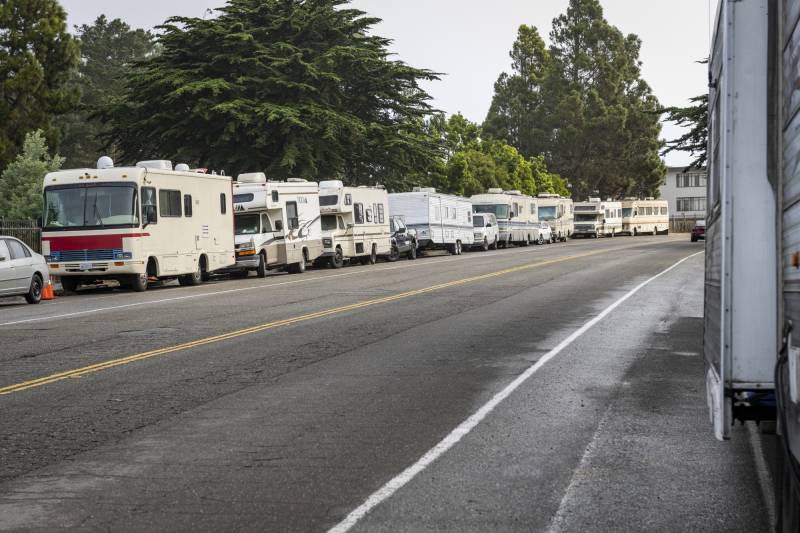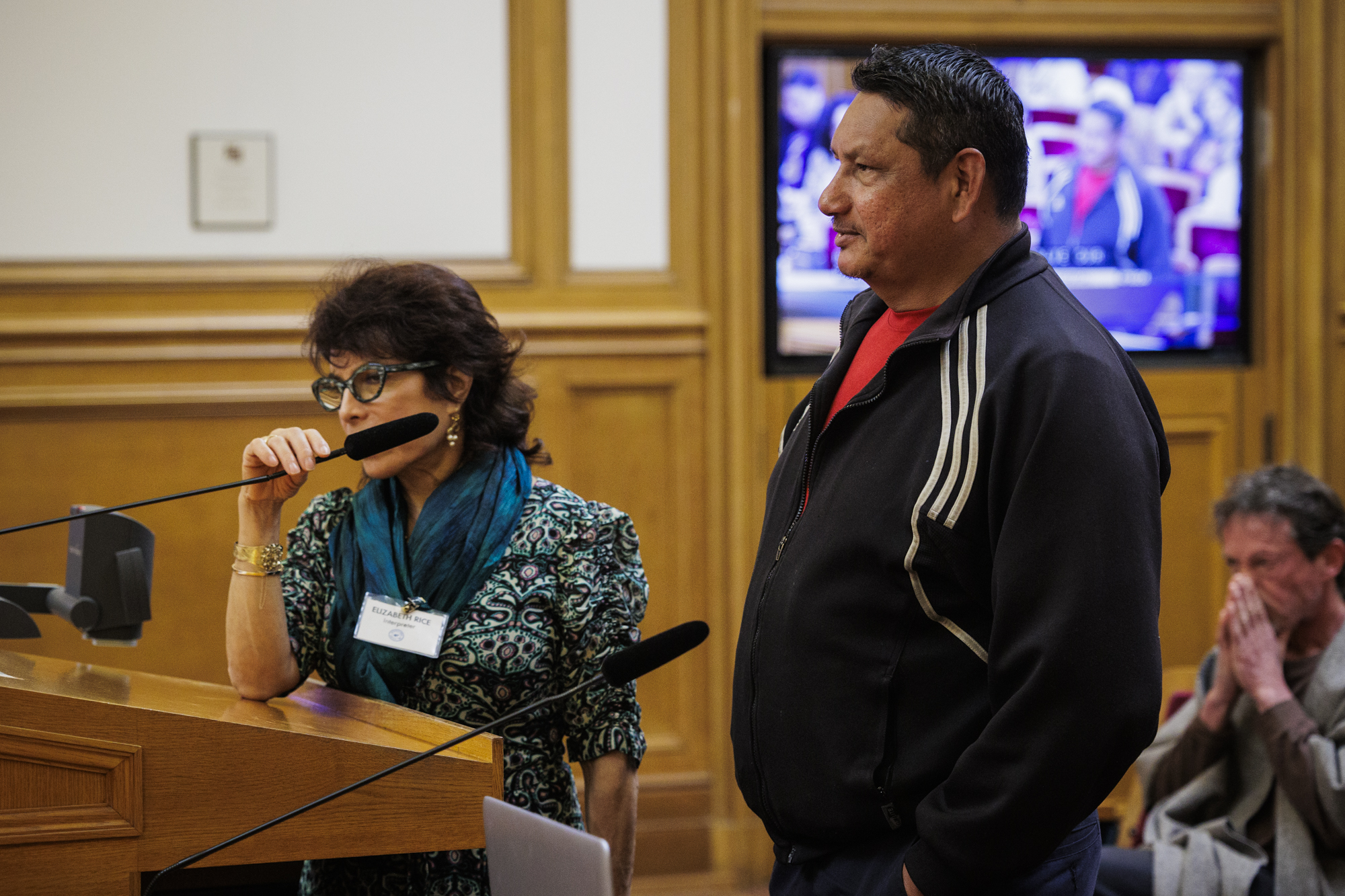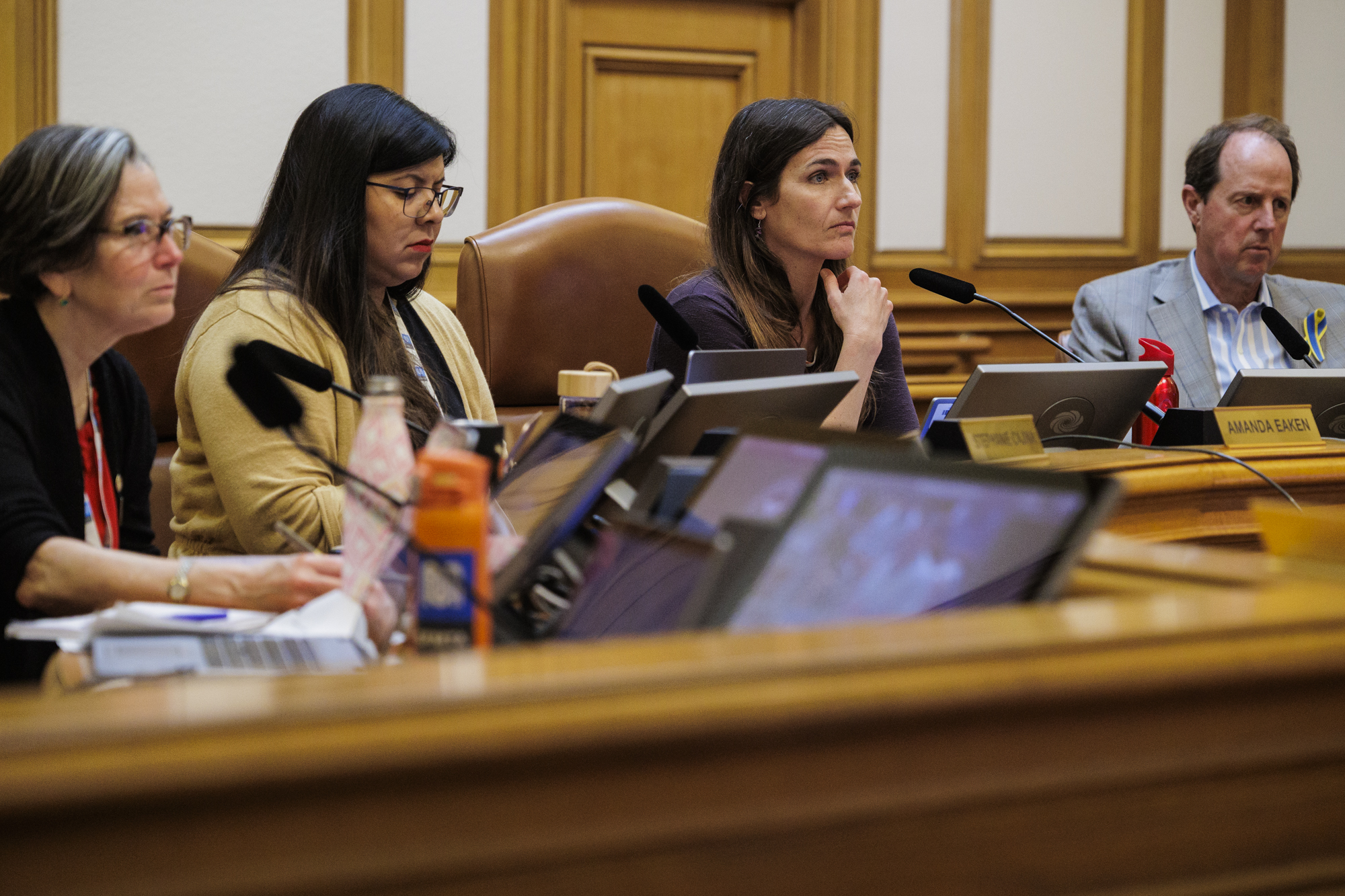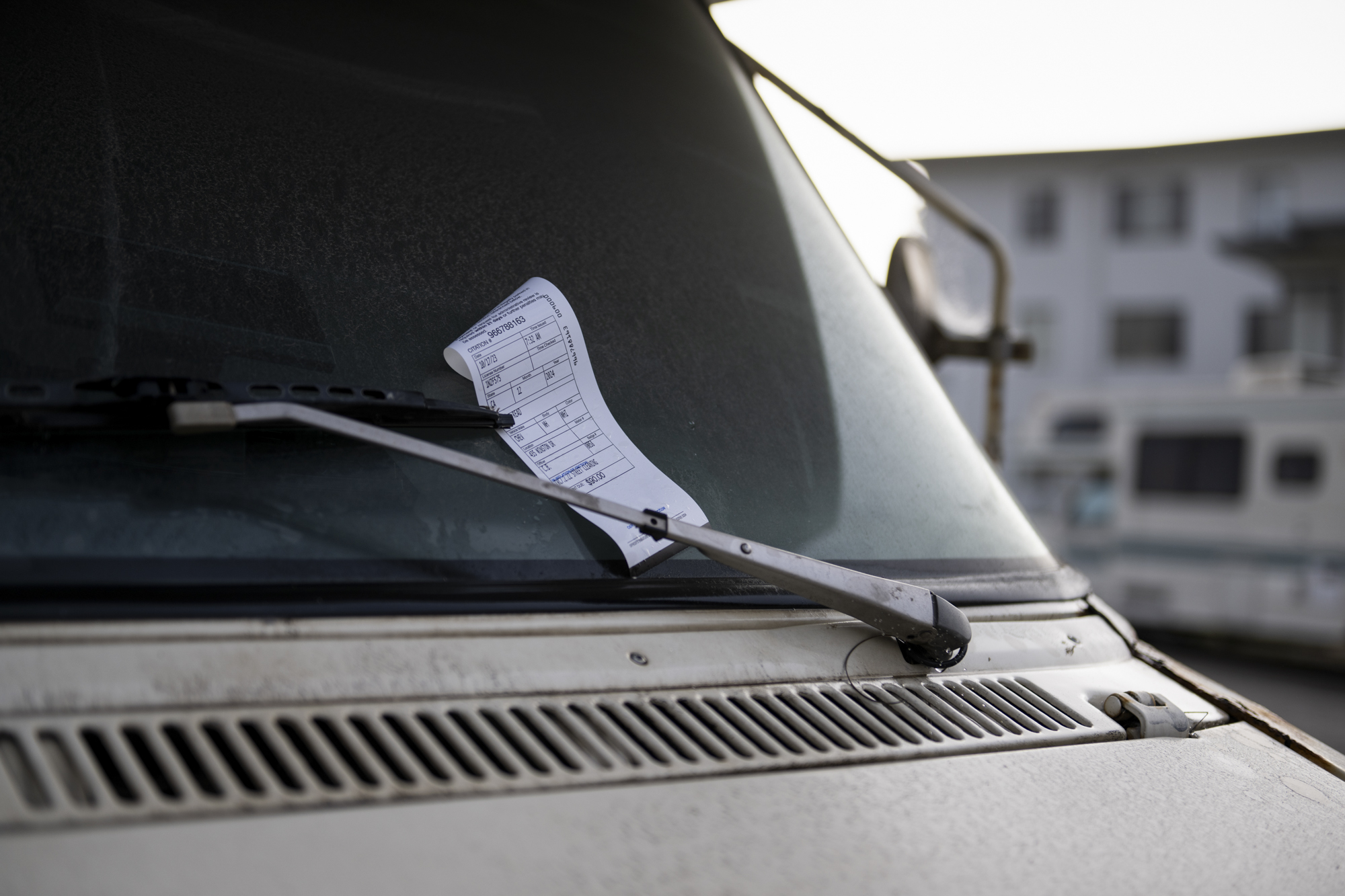After months of pressure from advocates to delay parking enforcement, San Francisco will begin requiring vehicles to be moved every four hours on streets between SF State and Stonestown Galleria, affecting a large RV community in the area.
San Francisco’s New Parking Rules Set to Displace RV Community Near SF State

Clusters of mobile homes have popped up around the Bay Area as housing has grown out of reach for many. However, the city’s effort to evict RVs through parking restrictions has been met with controversy. While some residents say mobile vehicles clutter their sidewalks and present safety issues, others say the RVs are homes and urge the city to find a long-term solution where they can park.
Marlon Arostegui has lived in an RV in the neighborhood for two years.
He has a job in towing to support his niece and her partner and said he doesn’t yet know what he will do when the parking tickets start.
“I’ve been living at Winston Drive, and we’ve been informed that we will get parking restrictions,” Arostegui said through a Spanish translator during the San Francisco Municipal Transportation Agency’s board meeting. “We’re asking for your support in finding a secure place to park.”
The new rules limit parking to four hours between Lake Merced Boulevard and Buckingham Way from 8 a.m. to 6 p.m. Monday to Friday.
The city has not stated exactly when the new parking restrictions will begin, but new parking limit signs are now erected. Residents living in RVs in the area were given a paper flier saying that “enforcement will begin soon” for the four-hour time limits.
“We don’t have the conditions to pay for rent,” Leticia, who lives in an RV with her two children on Winston Drive, said at Tuesday’s SFMTA meeting. “We need a safe place. We don’t have anywhere else to go. My two daughters are in school, and I need a safe place for both of them.”

During Tuesday’s SFMTA board meeting, Director Jeffrey Tumlin said, however, that the city “will not be doing any enforcement of these new signs” until after a nearby road paving program is complete and after the Department of Homelessness and Supportive Housing can do additional rounds of outreach to RV residents.
Parking and traffic safety enforcement will ramp up across the entire city in the coming weeks as the city has hired more parking patrol officers, Tumlin said.
Several speakers on Tuesday protested the decision and said that they couldn’t move their vehicles because they were at work during the day. Others needed help repairing a mechanical issue in order to drive.
Many said they wouldn’t be able to pay the $92 ticket that the city would issue to cars that don’t move and fear those tickets could further entrench their housing challenges.

Across San Francisco, people living in RVs are in similar face offs with the city. About 35 RV dwellers were facing displacement when the city announced it would begin enforcing parking limits near Bernal Heights Park.
Some neighbors complained the vehicles clogged up the road and sidewalk around the park. But a group of housed neighbors has also come together to delay enforcement until residents have an alternative place to go.
San Francisco’s Department of Homelessness and Supportive Housing has been working with people living in RVs on Winston Ave. for months to find housing placements and other solutions for people who want to stay in their RVs.
The Department previously told KQED it was reviewing potential locations where people living on Winstron could safely park their RVs. But no such location has been identified.

“You’ll be displacing a lot of families. You say this is for the safety for the public. But where are these people going to go after they are displaced? We aren’t thinking about that,” Yessica Hernandez, an organizer who has been working with families living on Winston Drive, said during public comment. “We have a huge problem with homelessness in San Francisco, and we aren’t going to get rid of it by putting in four-hour parking restrictions.”
As of Tuesday, many residents who came to speak at City Hall said they felt stranded without many options ahead.
“We need from you a safe place where we can move,” Walter Mejia, who has lived in an RV on Winston Dr for three years, said through a Spanish translator during Tuesday’s board meeting. “We don’t have the funds to pay for these parking tickets.”